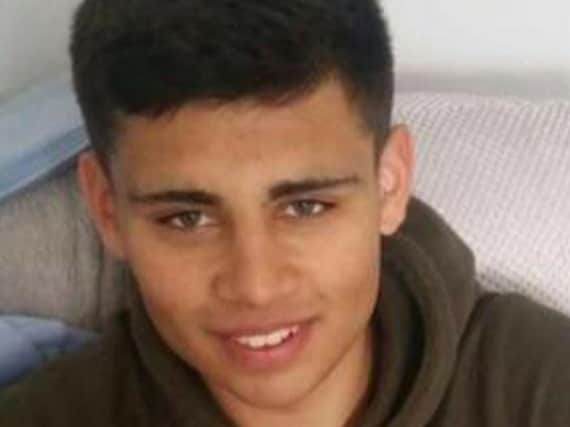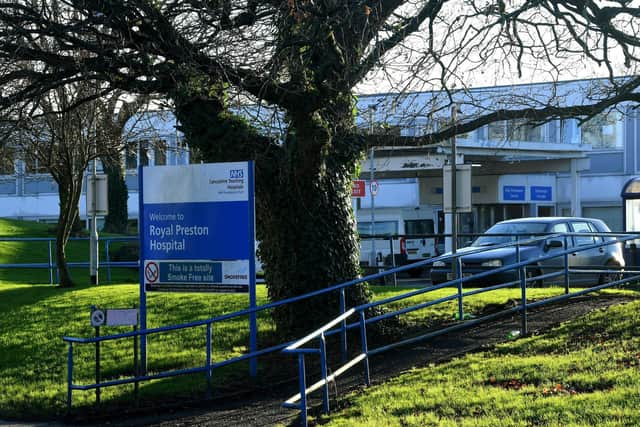Preston mother's heartbroken plea for more drugs education following inquest on death of her 17-year-old son


Sherrilea Jackson of Preston spoke out following the inquest at Preston Coroner's Court into the death of former Broughton High School student Khalil Patel.
Khalil,17, died on March 5, 2019, at Royal Preston Hospital following an adverse reaction after taking LSD (lysergic acid diethylamide), commonly known as acid.
Advertisement
Hide AdAdvertisement
Hide AdAfter hearing that Khalil had not been an habitual drug user Area Coroner Richard Taylor concluded this was a case of death by misadventure. He said: "Khalil was a very young man. He was, it would appear, innocent in the way of drugs and he would have had no idea as to the effect this drug had on him, no concept of that at all."


The coroner said that Khalil had taken the drug willingly, but did not anticipate its consequences. Khalil died after suffering seizures and multiple organ failure.
His mother told the inquest: "Khalil was not a drug user. He was a young boy experimenting in life and did the wrong thing."
The court was told that Khalil had been at his home in Foregate, Fulwood with friends, took the drug and suffered a very bad reaction. The coroner said: "At some stage his father arrived at the house and an ambulance was called and he was taken to the Royal Preston Hospital where he arrived in the early hours of the 3rd of March and sadly he passed away on the 5th."
Advertisement
Hide AdAdvertisement
Hide AdDetective Inspector Arthur Binns told the court the police service was contacted by the hospital when Khalil was in the critical care unit. He said: "It wasn't looking very good ... there had been an incident at the flat where Khalillived with friends. There was some talk of some substance being used."
He said he understood the life support was going to be turned off at the hospital, adding: "We were playing a little bit of catch up to some degree."
DI Binns continued: "I believe a friend of Khalil had attended Khalil's house/flat and they had partaken in the use of some drugs. I believe them to be LSD, a liquid form is some sort of glass vial with a dropper in it. All the evidence suggested Khalil had taken it of his own free will...he had a bad trip and he had a bad reaction to it."
He said the vial had been recovered from a bin at Khalil's home and he understood the teenager collapsed about 45 minutes after taking the drug. There was no evidence he had taken such a substance before.
Advertisement
Hide AdAdvertisement
Hide AdDI Binns said he understood when Khalil collapsed his friends put him in the recovery position believing he would recover. Khalil's father arrived later that evening and called family members and when Khalil started convulsing his father called the ambulance.
A friend had given a statement that Khalil had previously taken cannabis and ecstasy and had talked about experimenting with LSD.
The court was told the police had said they could not take proceedings due to lack of evidence against those who provided the LSD.
Medical evidence was given by Dr Irfan Chaudry, a consultant in critical care medicine at Royal Preston Hospital. He said: "The understanding from the outset was that he had taken some drugs . We were told it was potentially LSD or a combination (with) liquid Ecstasy...Once you have taken the drug you can't take it out of the system. ..Unfortunately his prognosis when he came into hospital was fairly dire because of the seizure activity"
Advertisement
Hide AdAdvertisement
Hide AdHe said once the drug affected the brain, if a person suffered seizures, irreversible damage is caused to the brain. Khalil was placed in a coma but was still showing evidence of seizures. Dr Chaudry said the cause of death was multiorgan failure due to continual seizures and secondly drug intoxication.
At the start of the inquest Mr Taylor stressed: "Noone is here on trial, least of all Khalil himself."
Giving his condolences to Khalil's family and friends, who later wept and hugged each other outside the court, he said their presence at the inquest "only demonstrates how missed and loved he was."
After the inquest Sherrilea paid tribute to her son saying: "He was absolutely loved. The hole that has been left is massive not just for me, but his friends as well. I just want people to know that he wasn't a drug user...I think the education needs to change around drugs. We're telling children to not to take drugs. They're doing it anyway."
Instead she said young people needed educating that if things went wrong they needed to get prompt medical help. She added: "I thought when Khalil was in hospital he was going to come back."